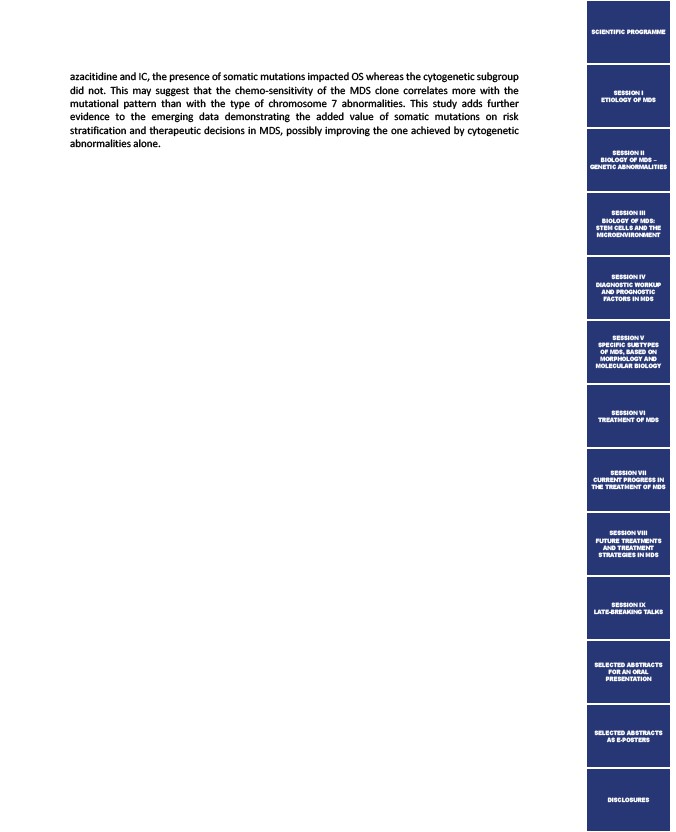
azacitidine and IC, the presence of somatic mutations impacted OS whereas the cytogenetic subgroup
did not. This may suggest that the chemo-sensitivity of the MDS clone correlates more with the
mutational pattern than with the type of chromosome 7 abnormalities. This study adds further
evidence to the emerging data demonstrating the added value of somatic mutations on risk
stratification and therapeutic decisions in MDS, possibly improving the one achieved by cytogenetic
abnormalities alone.
SCIENTIFIC PROGRAMME
SESSION I
ETIOLOGY OF MDS
SESSION II
BIOLOGY OF MDS –
GENETIC ABNORMALITIES
SESSION III
BIOLOGY OF MDS:
STEM CELLS AND THE
MICROENVIRONMENT
SESSION IV
DIAGNOSTIC WORKUP
AND PROGNOSTIC
FACTORS IN MDS
SESSION V
SPECIFIC SUBTYPES
OF MDS, BASED ON
MORPHOLOGY AND
MOLECULAR BIOLOGY
SESSION VI
TREATMENT OF MDS
SESSION VII
CURRENT PROGRESS IN
THE TREATMENT OF MDS
SESSION VIII
FUTURE TREATMENTS
AND TREATMENT
STRATEGIES IN MDS
SESSION IX
LATE-BREAKING TALKS
SELECTED ABSTRACTS
FOR AN ORAL
PRESENTATION
SELECTED ABSTRACTS
AS E-POSTERS
DISCLOSURES